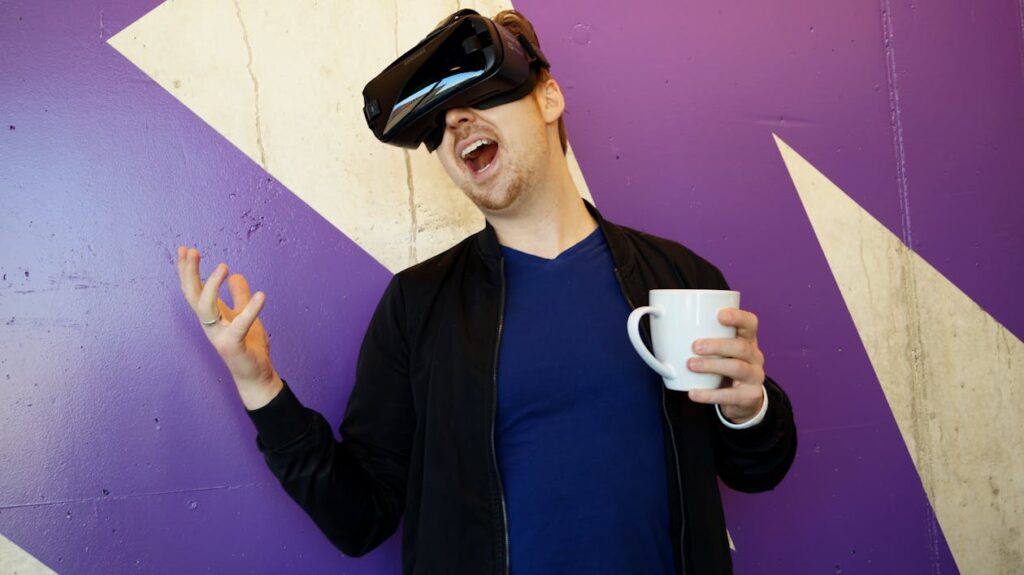The metaverse, a collective virtual shared space, offers brands opportunities for interaction, creativity, and commerce. As businesses seek innovative ways to engage with consumers, the concept of experiential marketing within virtual worlds has gained traction. This article explores how experiential marketing works in the metaverse, its potential benefits, challenges, and a few strategies brands can employ to navigate this new terrain.
The Rise of the Metaverse
The metaverse is an immersive digital world where users can interact in real-time with digital items and each other. It is a convergence of virtual reality, augmented reality, and the internet.
Leading the push in creating virtual worlds where people can interact socially, produce content, and even transact business are platforms like Decentraland, Roblox, and Second Life. These virtual spaces present a wide range of engagement opportunities, enabling organizations to reach out to customers in ways that were previously unthinkable.
Experiential Marketing in the Metaverse
Experiential marketing is an innovative approach that focuses on creating immersive and creative brand experiences for consumers. Unlike traditional forms of advertising that rely on one-way communication, experiential marketing seeks to actively engage consumers and elicit emotional responses through interactive experiences.
At its core, experiential marketing is about connecting with consumers on a deeper level by immersing them in brand-related activities, events, or environments. Rather than simply conveying messages about products or services, experiential marketing aims to create positive associations with the brand through firsthand experiences.
In the metaverse, experiential marketing leverages virtual reality (VR), augmented reality (AR), and other immersive technologies to create memorable brand experiences within virtual worlds. It offers brands the ability to create virtual spaces, events, and experiences that transcend the limitations of physical reality.
One of the key advantages of experiential marketing in the metaverse is its ability to break down geographical barriers. Unlike physical events, virtual experiences can be accessed by anyone, anywhere in the world, allowing brands to reach a global audience with ease. Additionally, the immersive nature of virtual environments fosters deeper connections between brands and consumers, leading to increased brand loyalty and engagement.
In the metaverse, experiential marketing comprises the following essential components:
Virtual Brand Spaces
Brands can create immersive virtual environments that serve as digital representations of their physical stores, offices, or branded spaces. These spaces allow consumers to explore, interact with products, and engage with the brand in a virtual setting.
Virtual Events and Activations
The future of events may be found in the metaverse, where brands can host product launches, live performances, or virtual meetups. These events offer opportunities for consumers to interact with the brand in real-time, participate in activities, and connect with other attendees from around the world.
Virtual Reality Marketing Campaigns
VR experiences allow consumers to experience products or services in a virtual environment. For example, automotive brands may offer virtual test drives, while travel brands may provide virtual tours of destinations. These VR campaigns offer consumers a realistic and immersive preview of the brand experience.
Social and Community Engagement
Brands can build communities and foster social interactions within virtual worlds, creating spaces for consumers to connect and engage with the brand. This may include hosting virtual gatherings, facilitating user-generated content, and fostering dialogue around brand-related topics.
Challenges and Considerations
While the potential benefits of experiential marketing in the metaverse are undeniable, navigating it comes with its own set of challenges and considerations. One primary concern for brands is ensuring that their virtual experiences are authentic and resonate with their target audience. Standing out and capturing consumers’ attention requires creativity and innovation.
Another challenge is the technical complexity of creating and managing virtual experiences. From designing immersive environments to optimizing performance across different platforms, brands must invest time and resources into mastering the tools and technologies required to succeed in the metaverse.
Privacy and security concerns also loom large in virtual environments, with issues such as data protection and online harassment posing significant risks for brands and users alike. Addressing these concerns requires careful planning and proactive measures to safeguard both brand reputation and consumer trust.
Strategies for Success
Despite the challenges, brands can take several steps to maximize the effectiveness of their experiential marketing efforts in the metaverse. First, it’s essential to understand the target audience and tailor virtual experiences to their preferences and interests. Brands can leverage data analytics to create personalized experiences that resonate with their audience on a deeper level.
Collaboration with experienced virtual world developers and designers can also help brands bring their vision to life and ensure that their virtual experiences are both technically sound and visually captivating. Additionally, fostering a sense of community within virtual spaces can enhance engagement and encourage user-generated content, further amplifying the reach and impact of experiential marketing campaigns.
And while experiential marketing in the metaverse offers exciting new opportunities, brands should integrate these efforts with their broader digital marketing strategies. Virtual experiences should complement and reinforce existing marketing initiatives across various channels, including social media, email marketing, and traditional advertising. Additionally, leveraging user-generated content from virtual experiences can extend the reach of marketing campaigns and drive organic engagement among consumers.
The Bottom Line
Experiential marketing in the metaverse offers brands the opportunity to create rich, interactive, and highly engaging experiences that go beyond the limitations of traditional marketing channels. While navigating the metaverse presents its own set of challenges, the potential rewards are vast for brands willing to embrace this exciting new frontier of marketing. Experiential marketing can help brands connect with consumers in innovative ways, driving brand affinity, loyalty, and advocacy in the digital world.

